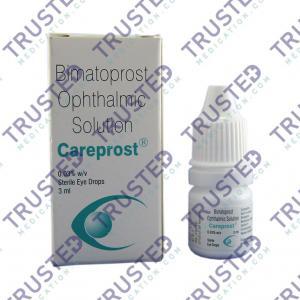
Lung cancer is a type of cancer that begins in the lungs. This deadly disease is the leading cause of cancer deaths worldwide, claiming more lives than colon, breast, and prostate cancers combined.
Types of Lung Cancer
There are two major types of lung cancer. These are based on the appearance of cancer cells under the microscope. Your doctor makes treatment decisions based on which major type of lung cancer you have. The two general types of lung cancer include:
- Non-small cell lung cancer (NSCLC): This is the most frequent form of lung cancer. It accounts for more than 80% of lung cancer cases. Common types include:
- Squamous cell carcinoma
- Adenocarcinoma
- Small cell lung cancer (SCLC): SCLC is less common. However, it tends to grow and spread more rapidly than NSCLC. It’s even harder to treat than NSCLC. It is frequently found as a tiny lung tumor that has migrated to other places in your body.
Stages of Lung Cancer
Lung cancer is usually staged based on the following:
- size of the initial tumor
- whether it’s spread to lymph nodes or other organs
- how far or deep into the surrounding tissue it goes
Each type of cancer has its guidelines for staging. The general staging for lung cancer is:
- Stage I: The cancer is small and hasn’t spread beyond the lung.
- Stage II: The cancer has spread to nearby lymph nodes.
- Stage III: The cancer has spread to the lymph nodes in the middle of the chest.
- Stage IV: The cancer has spread to both lungs, the fluid around the lungs, or distant organs.
What causes lung cancer?
Smoking is responsible for the majority of lung cancers, both in smokers and in those who are exposed to secondhand smoke. However, lung cancer can also develop in persons who have never smoked. It even affects people who have never experienced prolonged exposure to secondhand smoke. In these circumstances, there may be no obvious cause of lung cancer.
What are the symptoms of lung cancer?
Lung cancer rarely causes symptoms in its early stages. Symptoms of lung cancer often appear when the disease has advanced. Symptoms may include:
- A new cough that doesn’t go away
- Hoarseness
- Shortness of breath
- Coughing up blood
- Chest pain that worsens with coughing, deep breathing, or laughing
- Weight loss and loss of appetite
- Feeling tired or weak
- Infections such as bronchitis or pneumonia that don’t go away or keep coming back
- New onset of wheezing
How is lung cancer treated?
Treatment for lung cancer depends on the type and stage of the cancer, as well as your overall health and personal preferences. Treatment options include:
- Surgery: Surgery to remove the tumor and a margin of healthy tissue. Surgery is an option for early-stage lung cancer.
- Radiation therapy: Cancer cells are killed with radiation therapy, which uses high-energy beams. It is frequently used in tandem with chemotherapy.
- Chemotherapy: Chemotherapy uses drugs to kill cancer cells. It’s often used after surgery to kill any remaining cancer cells.
- Targeted drug therapy: Targeted drug therapy uses drugs that target specific abnormalities in cancer cells.
- Immunotherapy: Immunotherapy uses your immune system to fight cancer.
Risk factors for lung cancer
Several factors may increase your risk of developing lung cancer. Quitting smoking, for example, can help to reduce some risk factors. And other factors can’t be controlled, such as your family history.
Additional risk factors include:
- Being exposed to secondhand tobacco smoke.
- Being exposed to toxic substances like air pollution, coal products, and others.
- Having received previous chest radiation treatments (for example, for breast cancer or lymphoma).
- A family history of lung cancer.









